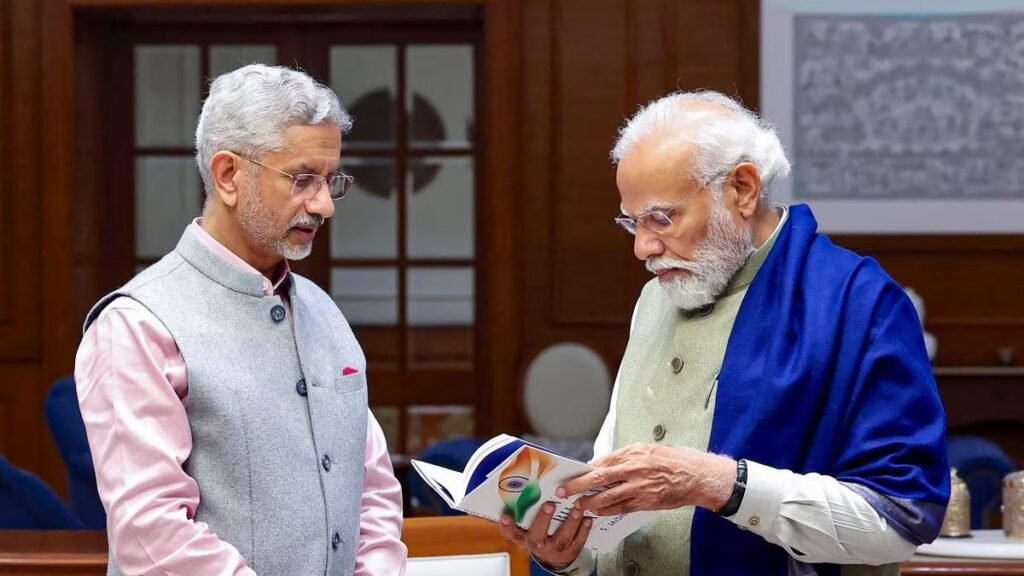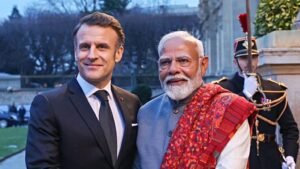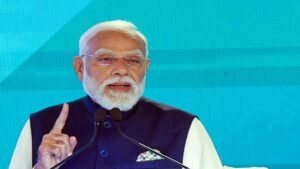India’s diplomacy acumen helping fuel trade

New Delhi/ Lucknow: India’s foreign diplomacy plays a significant role in shaping the business landscape, both domestically and internationally. Here’s how India’s diplomatic strategies are influencing business:
1. Bilateral and Multilateral Trade Agreements
- Enhanced Market Access: India’s foreign diplomacy efforts have led to the negotiation of bilateral and multilateral trade agreements, which open up new markets for Indian businesses. For example, agreements with countries in Southeast Asia and Africa have provided Indian companies with greater access to these emerging markets.
- Tariff Reductions: Diplomatic negotiations often result in the reduction or elimination of tariffs, making it cheaper and easier for Indian businesses to export goods and services.
2. Foreign Direct Investment (FDI)
- Attracting Investment: India’s diplomatic initiatives have been crucial in attracting foreign direct investment. High-level visits by Indian leaders to countries like the U.S., Japan, and European nations have led to increased investor confidence and commitments to invest in India. Sectors like technology, manufacturing, and infrastructure have particularly benefited.
- Ease of Doing Business: Diplomatic efforts have also focused on improving the ease of doing business in India, which is an attractive proposition for foreign investors. Reforms in taxation, regulatory frameworks, and land acquisition laws are often influenced by India’s diplomatic engagements with other nations.
3. Technology and Innovation
- Strategic Partnerships: India has leveraged its diplomatic relations to forge strategic partnerships in technology and innovation. Collaborations with countries like the U.S., Israel, and Japan in areas such as AI, defense technology, and clean energy are examples of how diplomacy is driving technological advancement in India.
- Transfer of Technology: Through diplomatic channels, India has been able to negotiate favorable terms for the transfer of technology, which benefits domestic industries and helps them compete globally.
4. Energy Security
- Diversifying Energy Sources: India’s foreign diplomacy has been instrumental in securing long-term energy deals, diversifying its energy sources. Agreements with countries in the Middle East, Central Asia, and Russia have ensured a steady supply of oil and gas, which is crucial for India’s growing economy.
- Renewable Energy Collaboration: Diplomatic efforts have also resulted in international collaboration on renewable energy projects, positioning India as a leader in solar and wind energy.
5. Defense and Security Ties
- Boosting Defense Exports: Through diplomatic channels, India has not only strengthened its defense capabilities but also emerged as an exporter of defense equipment. Partnerships with countries like Russia, Israel, and the U.S. have led to co-development and co-production agreements that benefit India’s defense industry.
- Security as a Business Enabler: Stronger defense and security ties contribute to a stable environment for business, making India a more attractive destination for investment.
6. Global Leadership and Soft Power
- Influence in Global Forums: India’s growing influence in global forums like the G20, BRICS, and the United Nations has bolstered its position as a key player in international trade and business negotiations. This has helped India advocate for issues that matter to developing economies, including favorable trade terms and sustainable development.
- Cultural Diplomacy: India’s use of soft power through cultural diplomacy, such as promoting Indian culture, yoga, and cinema, has helped create a positive image of the country. This cultural outreach has indirectly supported the growth of sectors like tourism, hospitality, and entertainment.
7. Crisis Management and Humanitarian Aid
- Strengthening Ties through Aid: India’s diplomatic efforts in providing humanitarian aid and crisis management, such as during natural disasters or pandemics, have strengthened its ties with other nations. These acts of goodwill often translate into stronger business relationships and trade deals.
- Pandemic Diplomacy: During the COVID-19 pandemic, India’s role in supplying vaccines to various countries under the “Vaccine Maitri” initiative boosted its global standing and created new avenues for business collaboration.
India’s foreign diplomacy is intricately linked to its economic growth and business expansion. By fostering strong international relationships, India not only enhances trade opportunities and attracts investment but also secures the technological and energy resources needed for sustained growth. As India continues to rise on the global stage, its diplomatic efforts will remain crucial in shaping the future of its business environment.









